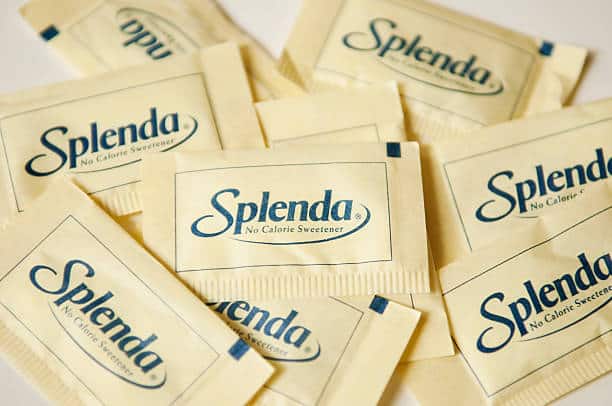
Most people know that Nutra-Sweet (Aspartame) is very unhealthy.
But what about Splenda and other artificial sweeteners?
Researchers recently investigated sucralose (Splenda) to see if it
could reduce hunger and keep blood sugar steady. They found that
it could not.
The researchers hoped to find that sucralose could cause the
intestine to produce a hormone that reduces blood sugar and
decreases appetite, which prior study had indicated might be a
possibility. But the effect did not occur when it was ingested
orally — hunger remained the same and the blood sugar remained the
same.
According to FYI Living:
“Worse, other research has shown that artificial sweeteners might
contribute to weight gain … [when the] sweet taste is not
accompanied by the calories (energy) our brain expects it to be,
the complex systems our bodies have to regulate energy balance may
be thrown off kilter. The result is that a diet high in artificial
sweeteners may possibly, over time, cause people to seek out more
calories from other sources.”
Unfortunately people think that artificial sweeteners are better
than consuming real sugar, especially for weight management. This
is simply not true.
The reality is, “diet foods” ruin your body’s ability to count
calories. This increases your desire to overindulge. And this
affect happens with all artificial sweeteners.
Also, contrary to popular belief, research has shown that
artificial sweeteners can stimulate your appetite, increase
carbohydrate cravings, and stimulate fat storage and weight gain.
In fact, diet sodas may actually double your risk of obesity!
In regards to Splenda (sucralose), it has been found to be
particularly damaging to your intestines.
A study published in 2008 found that Splenda:
- Reduces the amount of good bacteria in your intestines by 50
percent - Increases the pH level in your intestines, and
- Affects a glycoprotein in your body that can have crucial health
effects, particularly if you’re on certain medications like
chemotherapy, or treatments for AIDS and certain heart conditions.
They also found unmistakable evidence that Splenda is absorbed by
fat, contrary to previous claims.
In response to this study, James Turner, chairman of the national
consumer education group Citizens for Health issued the following
statement:
“The report makes it clear that the artificial sweetener Splenda
and its key component sucralose pose a threat to the people who
consume the product. Hundreds of consumers have complained to us
about side effects from using Splenda and this study … confirms
that the chemicals in the little yellow package should carry a big
red warning label.”
So the next time you’re looking to use artificial sweeteners,
consider skipping it. Excessive use of Splenda, Nutra-Sweet, and
other artificial sweeteners may cause problems with your health.
Have a great day and I’ll talk to you soon,
Dr. Justin Trosclair
Sources:
FYI Living March 10, 2011
European Journal of Clinical Nutrition April 2011; 65(4):508-13
Mercola.com
